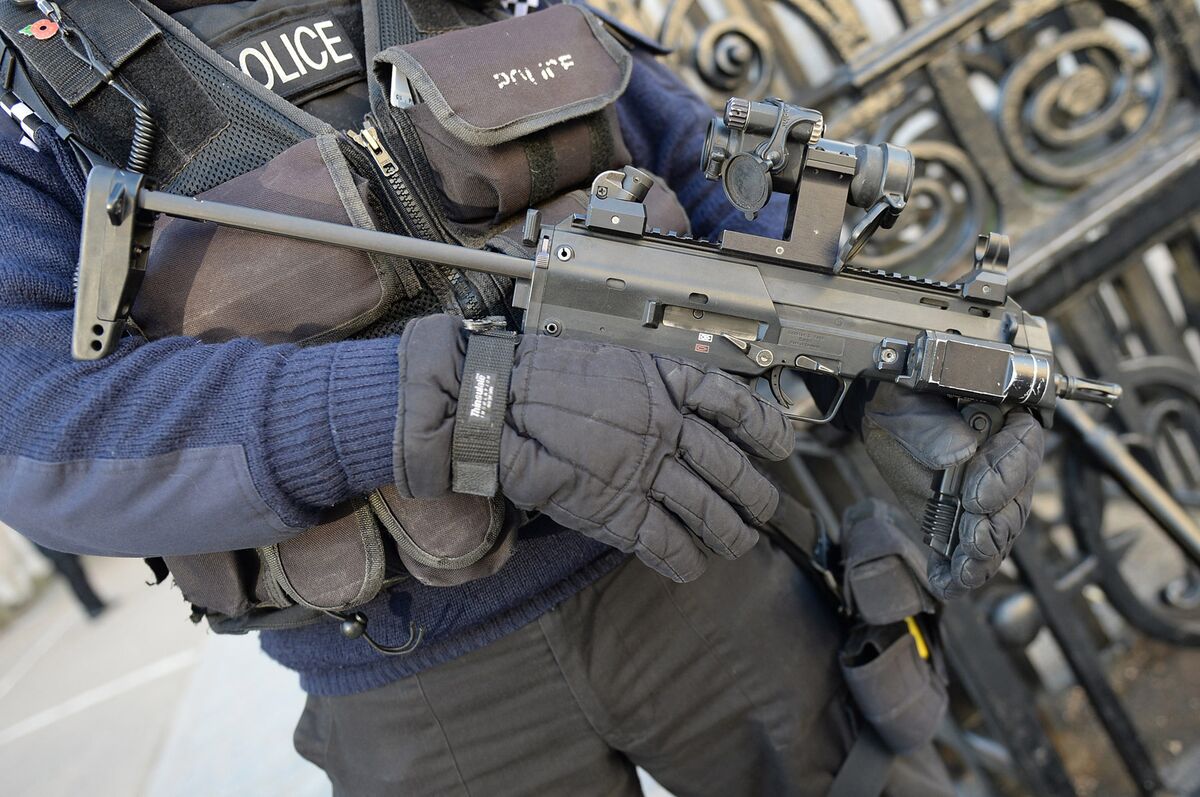
Soldiers are to patrol British landmarks and sporting events in their biggest homeland deployment in decades, as security services warned that another attack by terrorists who killed 22 people at a pop concert on Monday was imminent.
Prime Minister Theresa May announced late on Tuesday that intelligence analysts had raised the U. terrorism threat from “severe” to “critical” -- the highest level -- for the first time since 2007. Their fear is that the bomber who struck on Monday, and who was killed in the blast, wasn’t working alone.
“Critical means an attack is imminent,” Home Secretary Amber Rudd told the BBC on Wednesday. “It is based on intelligence which is assessed by the Joint Terrorism Analysis Center. They have the intelligence which has given them the incentive to do this.”
The worst terrorist incident on U. soil since 2005 comes just two weeks before a general election, and ahead of a weekend that has major sporting events scheduled including a soccer cup final at the national stadium in Wembley, London.
Rudd said as many as 3,800 troops would be available to meet requests from the police. They will be stationed in places where Britain currently has armed police, freeing those officers for other frontline patrol duties. police are unarmed, so the most jarring sight for many British people may be that of officers with submachine guns on the streets.
Rare Sight
The widespread use of troops on the streets of the British mainland is a very rare sight.
During the 2012 Olympics, rocket batteries were deployed around London as a precautionary measure. In 2003, armored vehicles were briefly deployed to Heathrow airport because of a specific terrorist threat. But historical precedents for large-scale deployment on the British mainland are few. Apart from World War II, when the country braced for an invasion, there is the General Strike of 1926, when soldiers protected food supplies from protesters.
France has had a state of emergency in place since the Charlie Hebdo terrorist attacks in January 2015, giving the state powers to ban public gatherings and heighten surveillance. President Emmanuel Macron’s government will have to decide whether to extend the state when current powers run out in mid July. About 7,000 soldiers are currently deployed on patrols in mainland France as part of the counter-terrorist effort.
Rudd emphasized that Britain has never previously stayed on the “critical” threat level for more than a few days.
Campaigning for the U.’s June 8 general election is on hold, with all the U.’s parties announcing indefinite suspensions and no activities planned for Wednesday.
May visited Manchester, in northern England, on Tuesday and vowed to fight the “ideology” behind the attack on a concert packed with children and teenage fans.
After returning to London to chair the government’s emergency COBRA committee of security chiefs, May updated the press on the progress of the police investigation and the threat of further attacks.
She confirmed that Salman Ramadan Abedi, the 22-year-old suicide bomber who carried out the attack at Manchester Arena on Monday that also injured 59, was born and raised in the U. Security services are working to establish whether he was part of a larger terrorist cell.
“The work undertaken throughout the day has revealed that it is a possibility we cannot ignore that there is a wider group of individuals linked to this attack,” May said. Police arrested a 23-year-old man in south Manchester on Tuesday as a suspected accomplice.
Rudd said on Wednesday that Abedi had recently returned from Libya.


0 comments:
Post a Comment